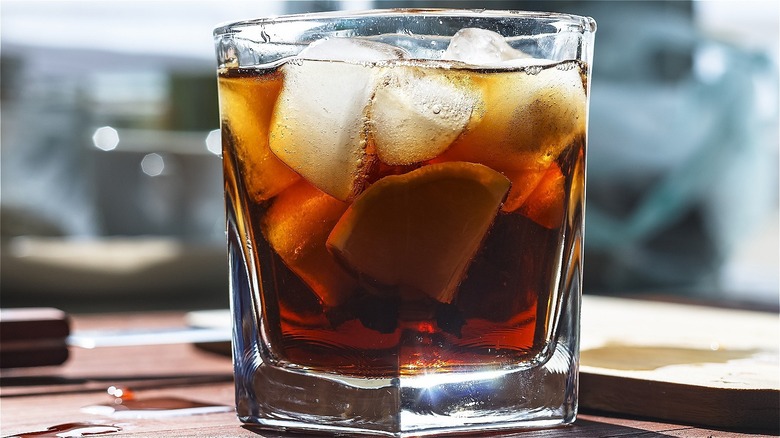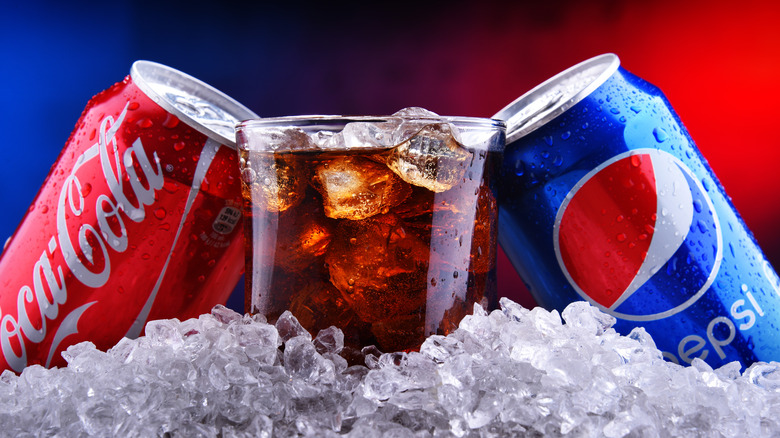Why Isn't It Rum And Pepsi?
Picture this: You stroll into a dimly lit bar illuminated only by the buzzing neon bar signs that hang asymmetrically above the pool table, the bartop still sticky from the last thirsty customer on a mission to curb his sobriety. Pangs of thirst stab at your dry throat as you finally order your go-to cocktail — rum & Coke. But then, the bartender snaps back with the ever-dreaded and painstakingly familiar service industry line, "Is Pepsi okay?" For the 64% of people who prefer Coke to Pepsi, no, it's not okay.
But as history tells it, it's not the flavor of Coke that has determined its popularity for countless generations. More than anything else, it was a tale as old as America that gave Coke its notoriety — a capitalist battle to dominate a growing market for both alcoholic and non-alcoholic beverages.
There was a major shortage of sugar following WWI that lead to the bankruptcy of most cola brands (per VinePair). Up until this point, the brand war was a relatively even playing field between Coca-Cola, Pepsi, and Chero-Cola (aka RC-Cola). However, Coca-Cola devised a dirty plan to maintain business. The company received a brand-saving bank loan in exchange for its secret formula. The timely bailout arrived conveniently with the rise of the American cocktail. However, this wasn't the whole story.
Despite a return to the market, Pepsi couldn't dominate the bar scene
To revive the struggling cola brand in 1929, candy store owner turned Pepsi marketing mogul Charles Guff had a plan in mind — sell Pepsi for a lower place. In an ironic turn of luck, thanks largely to the stock market crash of 1929 which curtailed the American economy (per Federal Reserve History), Pepsi's low-price initiative was enough to put them back on the soda market. Unfortunately, it was too late for Pepsi to make a major impact on the alcohol and nightlife industry (per VinePair).
While Pepsi had regained its market relevance, Coke was already the booze mixer of choice across the United States and beyond. Coke had a head start in the alcohol industry even before the sugar shortage. As a Cuban export, rum and Coke or Cuba Libre, originated in Havana as a celebration of Cuba's independence from Spain when a U.S Army captain mixed Bacardi rum with lime and Coca-Cola (per Liquor.com). By the 1940s, any chance Pepsi had left at disrupting the alcohol industry came to a halt when The Andrews Sisters released their version of the Trinidadian calypso song "Rum and Coca-Cola" — the second-largest grossing song of the decade (per Vinepair).
Ultimately, the overwhelming preference for Coca-Cola over Pepsi is merely a reflection of the relentless ebb and flow of American consumerism and capitalism. So next time your bartender asks, "Is Pepsi okay?" let your taste buds do the talking.

